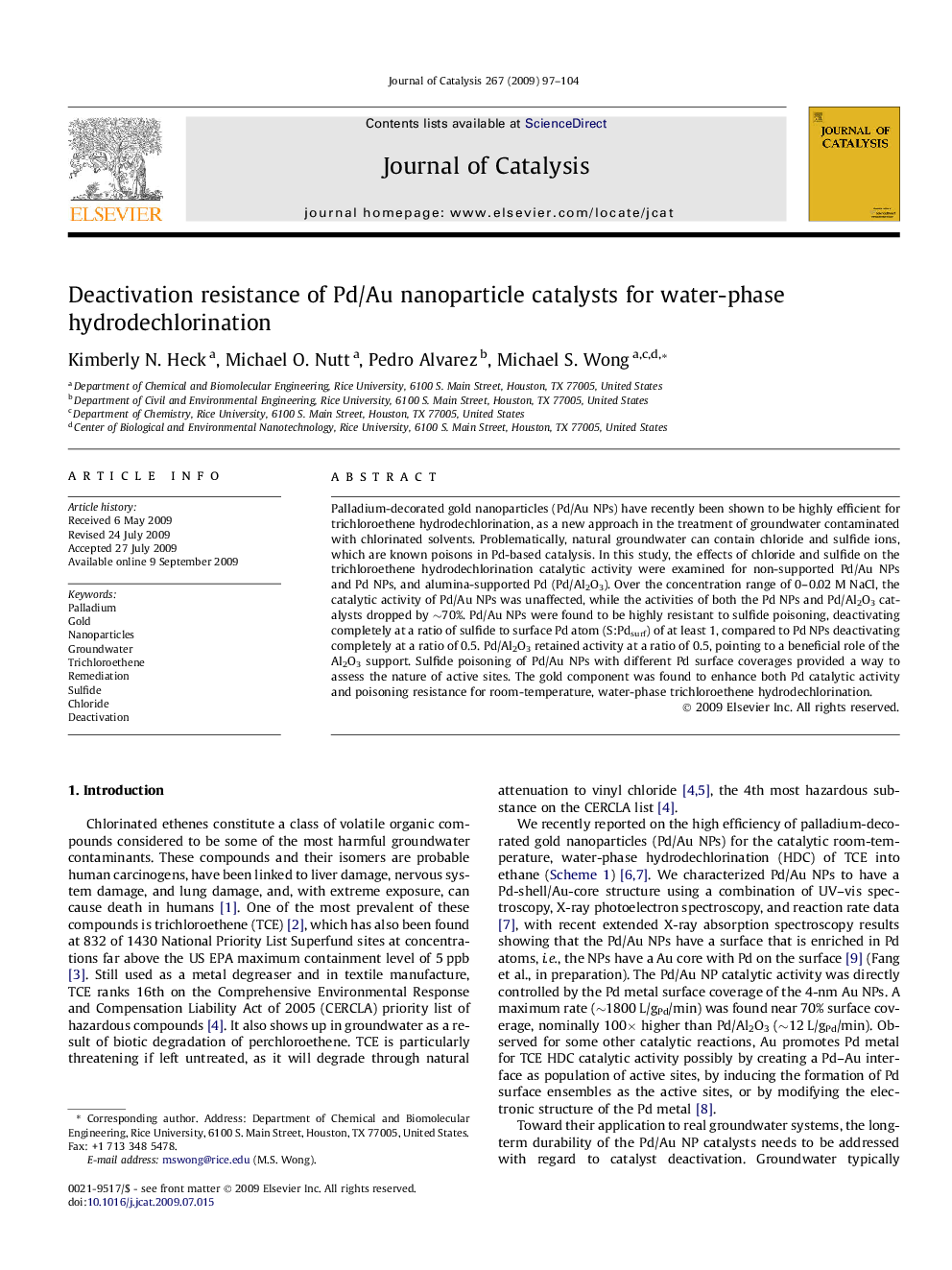| Article ID | Journal | Published Year | Pages | File Type |
|---|---|---|---|---|
| 62034 | Journal of Catalysis | 2009 | 8 Pages |
Palladium-decorated gold nanoparticles (Pd/Au NPs) have recently been shown to be highly efficient for trichloroethene hydrodechlorination, as a new approach in the treatment of groundwater contaminated with chlorinated solvents. Problematically, natural groundwater can contain chloride and sulfide ions, which are known poisons in Pd-based catalysis. In this study, the effects of chloride and sulfide on the trichloroethene hydrodechlorination catalytic activity were examined for non-supported Pd/Au NPs and Pd NPs, and alumina-supported Pd (Pd/Al2O3). Over the concentration range of 0–0.02 M NaCl, the catalytic activity of Pd/Au NPs was unaffected, while the activities of both the Pd NPs and Pd/Al2O3 catalysts dropped by ∼70%. Pd/Au NPs were found to be highly resistant to sulfide poisoning, deactivating completely at a ratio of sulfide to surface Pd atom (S:Pdsurf) of at least 1, compared to Pd NPs deactivating completely at a ratio of 0.5. Pd/Al2O3 retained activity at a ratio of 0.5, pointing to a beneficial role of the Al2O3 support. Sulfide poisoning of Pd/Au NPs with different Pd surface coverages provided a way to assess the nature of active sites. The gold component was found to enhance both Pd catalytic activity and poisoning resistance for room-temperature, water-phase trichloroethene hydrodechlorination.
Graphical abstractThe effects of chloride and sulfide on water-phase trichloroethene hydrodechlorination using Pd-on-Au nanoparticles (Pd/Au NPs), Pd NPs, and alumina-supported Pd were studied. Pd/Au NPs were resistant to chloride poisoning unlike monometallic Pd, and they showed greater resistance to sulfide poisoning than monometallic Pd. Lower Pd content surface coverages led to less activity but resistance to sulfide poisoning.Figure optionsDownload full-size imageDownload high-quality image (94 K)Download as PowerPoint slide
